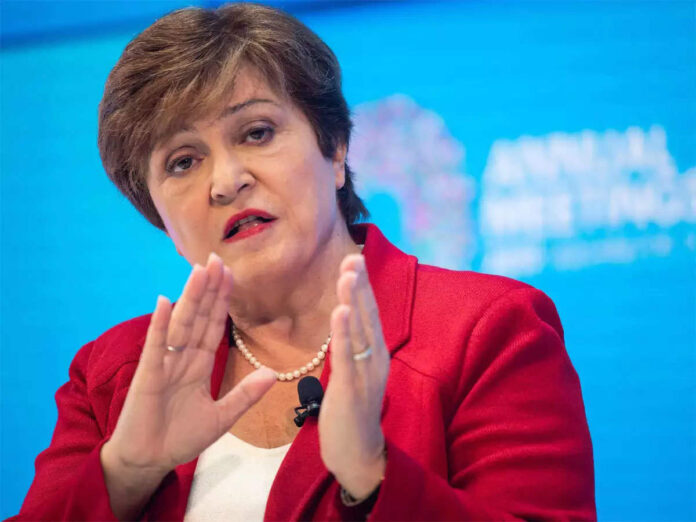WASHINGTON: Global finance officials are worried about rising inflation pressures but there it is little fear that it will become a “runaway train,” IMF chief Kristalina Georgieva said on Sunday.
With supply chain bottlenecks growing in the face of surging demand, policymakers have focused attention on rising prices and whether they will linger or fade away in coming months.
“We are in a more somewhat more uncertain space now,” Georgieva said at the G30 central banking conference.
However, in advanced economies “policymakers have the tools” to deal with inflation, she said, so “there is no significant concern that this would be a runaway train.”
Even so, finance ministers and central bankers gathered last week in Washington for the annual meetings of the IMF and World Bank were more concerned than previously that the prices increases could be more than transitory, she said.
And major emerging markets like Russia and Mexico already have raised interest rates showing that “in these places their policymakers are sufficiently concerned already to take action.”
In the world’s largest economy, US Federal Reserve officials have signaled they will begin to pull back on stimulus by tapering its bond purchases in the last few weeks of the year, but the benchmark interest rate is expected to remain at zero with no increase until late 2022 at the earliest.
The Bank of England so far has left its stimulus unchanged, but there were signs of dissent at its most recent policy meeting, when two of its rate-setting panel voted to stop the bond-buying stimulus as soon as possible to help quell inflation.
BoE Gov. Andrew Bailey said central bankers face a “very difficult balancing act” because they cannot address the underlying supply shocks with monetary policy, but have to respond to what is happening in the economy.
Failure to act to contain inflation risks undermining central banks’ inflation-fighting credibility, he said.
“We have … to preserve the huge progress we’ve made in terms of the credibility of monetary policy regimes. I mean that is absolutely critically important,” Bailey said at the conference.

